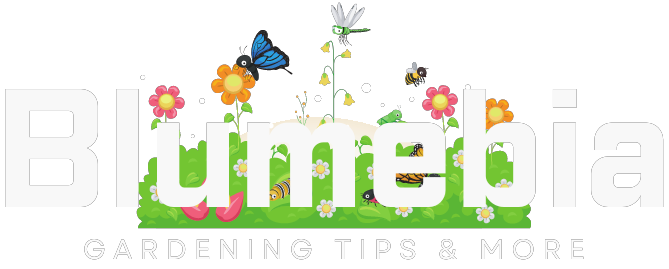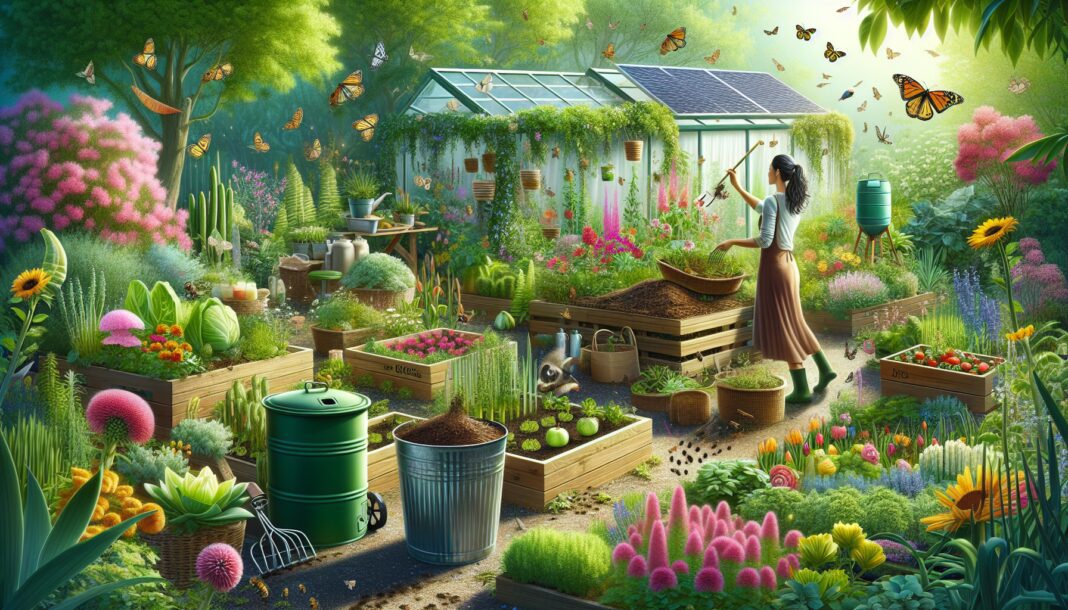Sustainable gardening practices are essential for reducing environmental impact while creating thriving green spaces. Studies show that traditional gardening methods contribute to water waste and soil degradation, but eco-friendly techniques can help combat these issues. Choosing organic fertilizers, conserving water, and encouraging biodiversity can promote a healthier ecosystem. Implementing earth-conscious methods not only benefits the planet but also enhances soil fertility and plant growth. Understanding these sustainable approaches will help transform any garden into a more environmentally responsible space.
Get Organic and Eco-Friendly Soil Management
Embracing organic and eco-friendly soil management transforms your garden into a thriving paradise. It nurtures the earth and ensures longevity for future generations. Implementing these techniques fosters a sustainable environment that supports healthy plant growth and biodiversity.
Benefits of Composting for Sustainable Gardening
Composting transforms kitchen scraps and yard waste into nutrient-rich soil. This natural process reduces landfill waste and provides essential nutrients to plants. Compost enriches the soil structure, improving its ability to retain moisture and resist erosion. As plants absorb nutrients from compost, they grow stronger and healthier, reducing the need for chemical fertilizers.
Using compost also encourages beneficial microorganisms, like bacteria and fungi, to thrive. These microorganisms break down organic matter, releasing nutrients over time. This slow release ensures plants receive a consistent supply of nutrients, promoting vigorous growth. Composting is an easy and cost-effective way to boost your garden’s health while reducing your environmental footprint.
Using Natural Mulches to Improve Soil Health
Natural mulches, such as straw, wood chips, or leaves, play a vital role in maintaining soil health. They insulate plant roots, conserving moisture and maintaining a stable temperature. Mulches also suppress weed growth, reducing competition for nutrients and water. Over time, as mulch breaks down, it adds organic matter to the soil, enhancing its structure and fertility.
Mulching encourages beneficial insects, like earthworms, to inhabit your garden. These insects aerate the soil, improving drainage and nutrient availability. Additionally, mulching contributes to the ecosystem by providing habitats for small creatures. This simple practice fosters a balanced and thriving environment for your plants.
Avoiding Chemical Fertilizers for a Greener Garden
Chemical fertilizers may offer quick results, but they can harm the environment over time. They often leach into waterways, causing pollution and harming aquatic life. These fertilizers can also disrupt the soil’s natural balance, leading to long-term degradation. Choosing organic alternatives, such as compost or natural fertilizers, supports a healthier ecosystem.
Organic fertilizers release nutrients slowly, allowing plants to absorb them efficiently. This process prevents nutrient runoff and ensures sustainable growth. Organic options also promote soil health by encouraging beneficial microorganisms. Avoiding chemical fertilizers contributes to a greener garden and a healthier planet.
Water Conservation Strategies for Sustainable Gardens
Water conservation in gardening not only preserves this precious resource but also ensures your garden thrives. Implementing efficient watering techniques and selecting drought-resistant plants can significantly reduce water usage.
Implementing Drip Irrigation for Efficient Water Use
Drip irrigation delivers water directly to the plant’s root zone, minimizing evaporation and runoff. This system ensures plants receive the right amount of water, promoting healthy growth. Drip irrigation also reduces the risk of overwatering, which can lead to root rot and disease. Installing a drip system is an efficient way to conserve water while maintaining a lush garden.
This method saves time and effort, as it requires less maintenance than traditional watering methods. Drip irrigation systems can be easily customized to suit the specific needs of your garden. With this approach, you can enjoy a flourishing garden while conserving water and promoting sustainability.
Harvesting Rainwater to Reduce Dependency on Tap Water
Collecting rainwater is a sustainable practice that reduces reliance on tap water. Rain barrels or cisterns capture rain runoff from rooftops, storing it for future use. This practice conserves water and provides a chlorine-free source for your plants. Rainwater harvesting is an eco-friendly way to maintain a healthy garden while minimizing environmental impact.
Using rainwater also helps you save money on water bills, making it a cost-effective gardening solution. It’s a simple and effective way to contribute to a more sustainable lifestyle. Embrace rainwater harvesting and enjoy the benefits of a thriving, water-wise garden.
Choosing Drought-Resistant Plants for Low-Water Gardening
Drought-resistant plants, like succulents or native species, require minimal water to thrive. These plants adapt to local climates, reducing the need for supplemental watering. Choosing drought-tolerant varieties not only conserves water but also supports a resilient and low-maintenance garden.
These plants often boast vibrant colors and unique textures, enhancing your garden’s aesthetic appeal. Selecting drought-resistant species fosters biodiversity and creates a habitat for local wildlife. Adopting low-water gardening practices benefits both your garden and the environment, ensuring a sustainable future for all.
Promoting Biodiversity for a Thriving Ecosystem
Fostering biodiversity in your garden ensures a healthy and balanced ecosystem. Encouraging diverse plant and animal life supports natural processes and enhances garden resilience.
Attracting Pollinators with Native Flowering Plants
Native flowering plants attract essential pollinators, like bees and butterflies, to your garden. These pollinators play a crucial role in plant reproduction, ensuring a bountiful harvest. Native plants offer nectar and pollen, providing vital resources for these creatures. By planting native species, you contribute to a healthy ecosystem and support local pollinator populations.
Creating a pollinator-friendly garden involves selecting a variety of plants that bloom at different times. This approach ensures a continuous supply of resources for pollinators throughout the year. Promoting pollinator activity in your garden fosters biodiversity and enhances the health of your plants.
Companion Planting Techniques for Natural Pest Control
Companion planting involves growing plant combinations that benefit each other. Certain plants deter pests, reducing the need for chemical pesticides. This natural pest control method supports a balanced ecosystem and promotes healthy plant growth.
For example, planting marigolds alongside vegetables can repel harmful insects. Basil can improve the flavor of tomatoes while deterring aphids. These strategic planting choices create a harmonious garden environment, reducing pest problems and enhancing plant health.
Creating Wildlife Habitats to Support Local Ecosystems
Creating wildlife habitats in your garden supports local ecosystems and promotes biodiversity. Providing food, water, and shelter encourages various species to thrive. Birdhouses, bee hotels, and native plants offer vital resources for wildlife. These features attract beneficial insects, birds, and small mammals, enhancing your garden’s ecological balance.
Wildlife-friendly gardens contribute to the conservation of local species and foster a sense of connection with nature. Embracing these practices enriches your gardening experience and ensures a vibrant, dynamic ecosystem. A garden teeming with life offers endless opportunities for enjoyment and discovery.
Conclusion
Get Organic soil management, composting, and natural mulching improve soil fertility while reducing waste and dependence on chemicals. Avoiding chemical fertilizers and using organic alternatives maintain soil health and prevent environmental harm. Water conservation strategies, including drip irrigation and rainwater harvesting, reduce water waste and lawn maintenance costs. Drought-resistant plants enhance biodiversity and require minimal irrigation for sustainable gardening. Encouraging pollinators, companion planting, and creating wildlife habitats strengthen ecosystems and promote natural pest control.
FAQ
What are the best sustainable gardening practices for beginners?
Starting with sustainable gardening involves simple steps. Choose native plants that adapt well to local climates, reducing the need for extra water and fertilizers. Mulching helps retain moisture and suppress weeds, while crop rotation maintains soil health. Encouraging biodiversity by planting a variety of species creates a resilient garden ecosystem.
How can I create an eco-friendly and organic garden at home?
To build an eco-friendly garden, focus on organic methods. Use natural compost to enrich the soil instead of chemical fertilizers. Collect rainwater for irrigation to conserve resources. Opt for companion planting to naturally deter pests and promote growth. Choosing tools made from sustainable materials further reduces your environmental footprint.
What are the benefits of using compost and natural fertilizers in sustainable gardening?
Compost and natural fertilizers enhance soil fertility without harming the environment. They improve soil structure, allowing better water retention and root growth. These organic materials provide essential nutrients, supporting plant health and reducing dependency on chemical inputs. They also promote beneficial microbial activity in the soil, creating a healthier garden ecosystem.
How can I conserve water effectively while maintaining a healthy garden?
Water conservation in gardening starts with efficient practices. Install a drip irrigation system that delivers water directly to plant roots, minimizing waste. Mulching helps retain soil moisture, reducing evaporation. Watering early in the morning or late afternoon minimizes water loss caused by midday sun. Selecting drought-resistant plants also lessens water needs.
What are the best natural pest control methods for an environmentally friendly garden?
Embrace natural pest control by encouraging beneficial insects like ladybugs and lacewings, which prey on harmful pests. Introduce plants like marigolds and basil that naturally repel insects. Handpicking larger pests or using organic solutions such as neem oil and insecticidal soap can effectively manage infestations without harming the environment.
How do native plants contribute to a more sustainable garden ecosystem?
Native plants play a crucial role in sustainable gardening. They require less maintenance, water, and fertilizers since they adapt to local conditions. Their presence in the garden supports local wildlife, providing habitat and food sources. Native plants also help maintain biodiversity, making the garden more resilient to pests and diseases.



